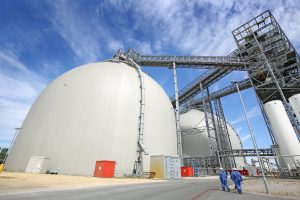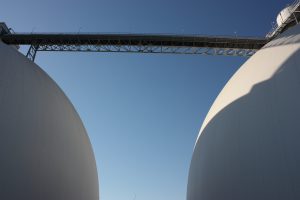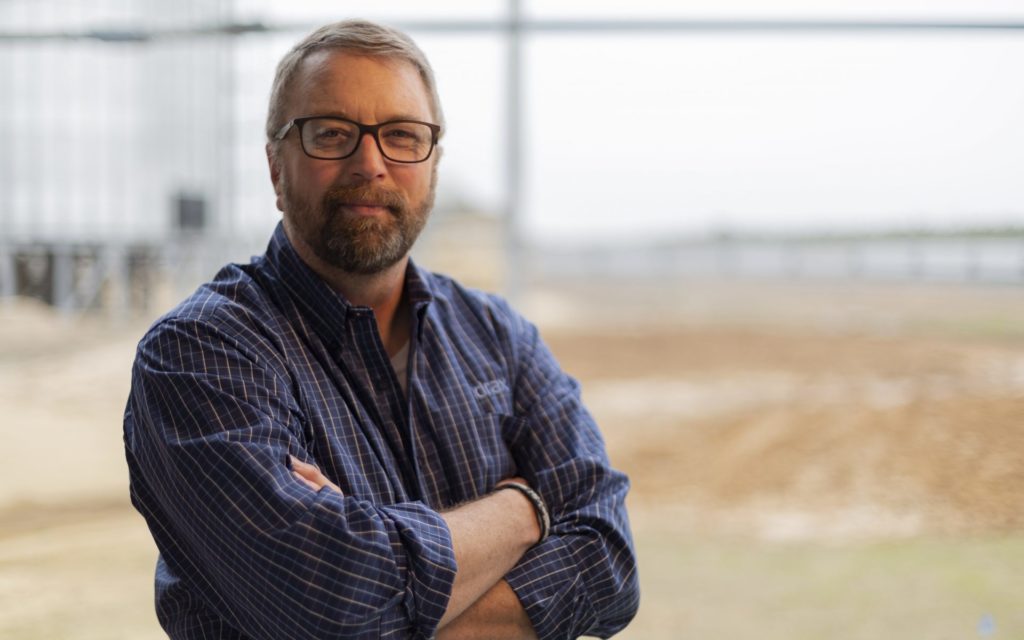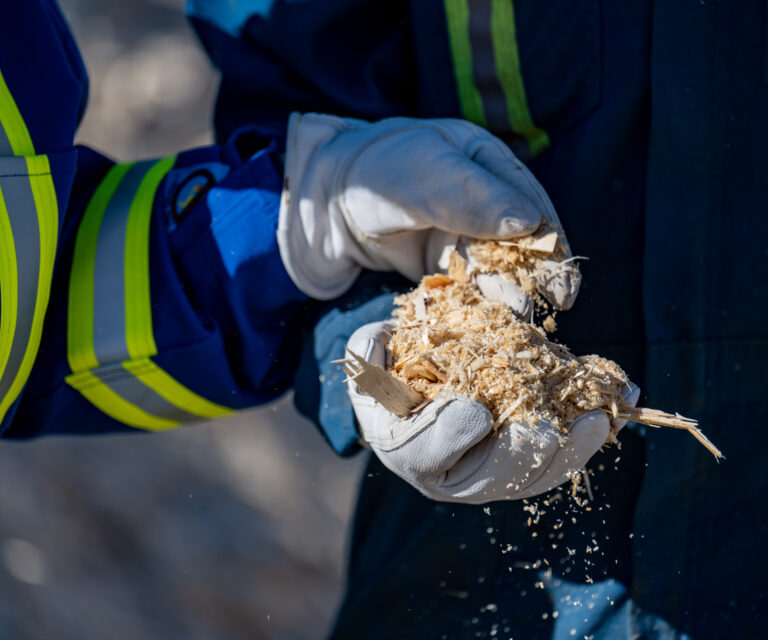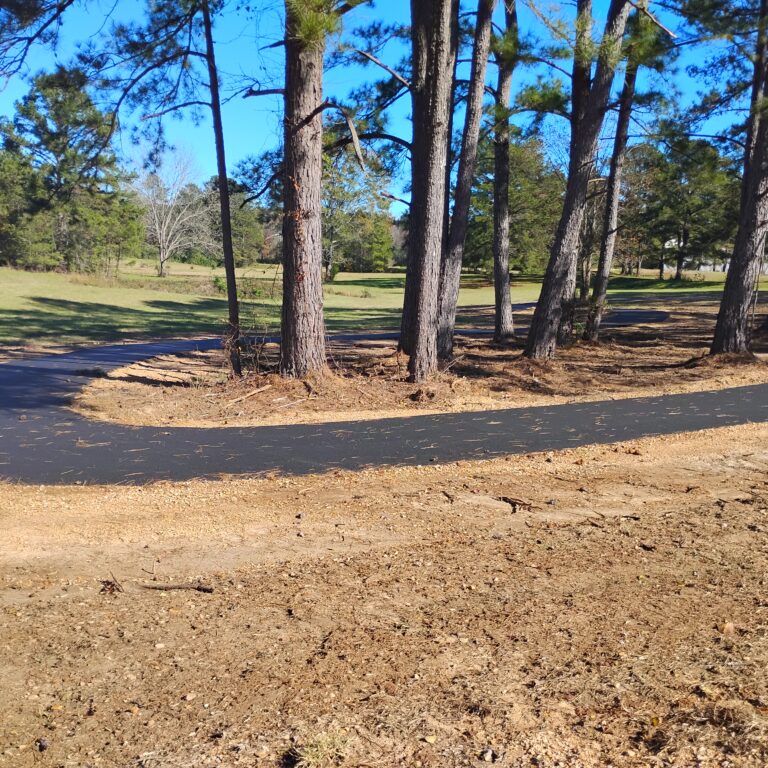The “Fight the Blight” project enables demolitions of vacant, unsafe, and dilapidated structures in Bastrop’s main corridors to improve safety as well as enhance the area’s appearance.
Matt White, Executive Vice President of Drax’s Pellet Operations, said:
“We’re pleased to be able to donate to an organization like Keep Morehouse Beautiful which plays such a positive role in the community. The work they do is so important to improving our surroundings and benefits us all by making the local area a safer and more pleasant place to live and work. I hope this donation will support them in their efforts to help Morehouse unlock its potential.”
KMB has completed more than 20 demolitions in the last 11 years, proving that their beautification efforts make a real difference for their community.
Vicki Carpenter, KMB Coordinator, said:
“KMB believes that ‘beautification is economic development.’ We work very hard to promote Morehouse Parish in the interest of environmental respect and stewardship. The demolitions done by KMB were only possible through partnerships with the property owners and generous donations from KMB supporters such as Drax.”
Kay King, Morehouse Economic Development Corporation CEO, said:
“KMB is a great economic development partner. Their focus has been on the properties on West Madison as a gateway ‘to and from’ Monroe. The objective is to incentivize property owners to get involved in the clean-up process to stimulate business growth along our major traffic corridors.”
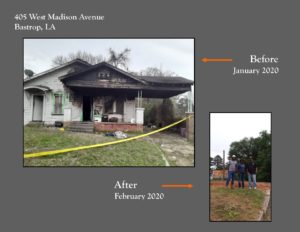 According to the US Environmental Protection Agency (EPA), selective demolitions can create employment and economic activities in recycling industries and provide increased business opportunities within the local community.
According to the US Environmental Protection Agency (EPA), selective demolitions can create employment and economic activities in recycling industries and provide increased business opportunities within the local community.
Keep Morehouse Beautiful is a non-profit organization made up solely of volunteers dedicated to economic development and environmental respect. The organization works to educate others on caring for their environment and building awareness for local environmental issues.
Drax is committed to supporting the communities local to its operations and is this year drawing up plans for a more targeted community spend.
In 2021, Drax supported education and skills in Louisiana, Mississippi, Arkansas and Alabama and provided donations to help communities hit by natural disasters and Covid and work to support sustainable forestry.
In Louisiana, support included Hurricane Ida relief efforts, sponsoring an environmental education workshop for teachers and launching a Classroom of the Month program.
ENDS
Pic caption: Matt White, Executive Vice President of Drax’s Pellet Operations
Media contacts:
Megan Hopgood
Communications Officer
E: megan.hopgood@drax.com
T: 07936 350 175
Editor’s Notes
- Through its operations in Louisiana and Mississippi, Drax supports more than 1,200 jobs and contributes $175m to the region’s economy.
- This includes more than 1,200 jobs in Louisiana and Mississippi with 300 direct jobs across these two states in Drax’s three pellet mills and at the port of Greater Baton Rouge.
- Drax’s pellet mills also support the wider supply chain of loggers, truckers, railway workers, port workers and other logistics professionals.
About Drax
Drax Group’s purpose is to enable a zero carbon, lower cost energy future and in 2019 announced a world-leading ambition to be carbon negative by 2030, using bioenergy with carbon capture and storage (BECCS) technology.
Drax’s around 3,000 employees operate across three principal areas of activity – electricity generation, electricity sales to business customers and compressed wood pellet production and supply to third parties. For more information visit www.drax.com
Power generation:
Drax owns and operates a portfolio of renewable electricity generation assets in England and Scotland. The assets include the UK’s largest power station, based at Selby, North Yorkshire, which supplies five percent of the country’s electricity needs.
Having converted Drax Power Station to use sustainable biomass instead of coal it has become the UK’s biggest renewable power generator and the largest decarbonisation project in Europe. It is also where Drax is piloting the groundbreaking negative emissions technology BECCS within its CCUS (Carbon Capture Utilisation and Storage) Incubation Area.
Its pumped storage, hydro and energy from waste assets in Scotland include Cruachan Power Station – a flexible pumped storage facility within the hollowed-out mountain Ben Cruachan.
The Group also aims to build on its BECCS innovation at Drax Power Station with a target to deliver 4 million tonnes of negative CO2 emissions each year from new-build BECCS outside of the UK by 2030 and is currently developing models for North American and European markets.
Pellet production and supply:
The Group has 17 operational pellet plants and developments with nameplate production capacity of around 5 million tonnes a year.
Drax is targeting 8 million tonnes of production capacity by 2030, which will require the development of over 3 million tonnes of new biomass pellet production capacity. The pellets are produced using materials sourced from sustainably managed working forests and are supplied to third party customers in Europe and Asia for the generation of renewable power.
Drax’s pellet plants supply biomass used at its own power station in North Yorkshire, England to generate flexible, renewable power for the UK’s homes and businesses, and also to customers in Europe and Asia.
Customers:
Drax supplies renewable electricity to UK businesses, offering a range of energy-related services including energy optimisation, as well as electric vehicle strategy and management.
To find out more go to the website www.energy.drax.com




